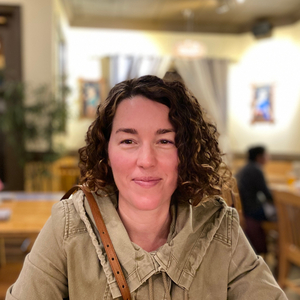Vegan Diets and Eating Disorders: What's the Connection?
Table of Contents
- The rise in vegan and vegetarian diets
- Do vegan/vegetarian diets lead to eating disorders?
- Vegan/vegetarian eating disorder facts and statistics
- When a child goes vegan: A note for parents and caregivers
- Eating disorder warning signs
- Vegan/vegetarian diets in eating disorder treatment
- Find help for disordered eating
The rise in vegan and vegetarian diets
Vegan and vegetarian diets are growing in popularity in many countries around the world [1].
Those who choose this lifestyle are often driven to help the planet or to help animals.
Others may choose a vegan or vegetarian diet for health reasons or because they think it will change their physical appearance.
Simply search for the terms “vegan” and “vegetarian” on any social media platform and you’ll find a wide variety of messages promoting diets that avoid meat and/or dairy.
Vegan and vegetarian diets are promoted and encouraged by the Academy of Nutrition and Dietetics and many other influential health care groups, proclaiming these diets as “healthy.”
While many people follow life-long vegan and vegetarian diets that meet their physical and psychological needs, eating disorder professionals are concerned that these diets can be a socially acceptable way to restrict food or hide an eating disorder.
Vegan vs. vegetarian: What’s the difference?
Vegan diets typically avoid anything that comes from animals: beef, fish, poultry, dairy and eggs. Some vegans will also avoid honey and wearing any animal furs or skins, including leather and suede.
Vegetarian diets include various eating patterns that avoid meat itself, but still allow other animal products. For example, many vegetarians choose to consume eggs and dairy products (or one or the other). Those who identify as pescatarians consume fish or fish products (e.g., fish oil supplements).
According to the Vegan Society,
"Veganism is a philosophy and way of living which seeks to exclude — as far as is possible and practicable — all forms of exploitation of, and cruelty to, animals for food, clothing or any other purpose; and by extension, promotes the development and use of animal-free alternatives for the benefit of animals, humans and the environment.
In dietary terms it denotes the practice of dispensing with all products derived wholly or partly from animals."
Compared to vegetarianism, the vegan diet and lifestyle is much more restrictive, requiring extensive changes to one’s diet and lifestyle. And that’s where the concern about eating disorders comes in.

Why do people choose a vegan or vegetarian diet?
People choose to become vegan or vegetarian for a variety of reasons.
- They may believe that eating this way will bring them health benefits.
- Or they may believe it is the ethical or “right” way to eat.
- Many vegans and vegetarians feel that their choice of diet is a central part of their identity and feel positive identifying with the larger vegan/vegetarian community [2].
Other common reasons to choose a vegan or vegetarian diet include:
- Ethical reasons (i.e., to avoid harming animals)
- Cultural reasons (i.e., to align with your culture or religious beliefs)
- Environmental reasons (i.e., to help slow down climate change)
- Financial reasons (i.e., meat is too expensive)
- Nutritional reasons (i.e., to eat more vegetables and fruits)
- For weight loss
Since this piece focuses on the link between vegan/vegetarian diets and eating disorders, we will focus on the last two bullet points listed above: “nutritional reasons” and “weight loss.”
Do vegan/vegetarian diets lead to eating disorders?
Any type of diet (low-calorie, keto, low-carb, plant-based) can trigger the cascade toward an eating disorder in those who are susceptible.
In eating disorder treatment centers, many patients report adopting a vegan or vegetarian diet as one of the first steps that led to developing an eating disorder.
“While there are many reasons an individual may choose to follow a vegan or vegetarian diet, going vegan can be a socially acceptable way to restrict food intake.
By saying, ‘I can’t eat that; I’m vegan,’ it’s less likely that other people will question the individual’s choice not to eat certain foods,” shares Adee Levinstein, MS, RD, LD, CEDS-C, clinical dietitian training specialist at Eating Recovery Center (ERC).
Since vegan and vegetarian diets are often socially accepted, and the individual may not even be aware that they are at risk, it is important for parents, caregivers, friends and loved ones to be aware of the link between these diets and eating disorders.
Levinstein explains: “Being vegan can help someone with an eating disorder fly under the radar. Veganism is now a common dietary restriction in society.
However, a vegan diet can lead to nutritional deficiencies and, if a person has other risk factors, going vegan can lead to disordered eating behaviors which may progress to an eating disorder.”
Vegan/vegetarian eating disorder facts and statistics
- A 2018 study of 1,008 patients with eating disorders found a much higher rate of veganism in current patients compared to the general population (6-16% of patients vs. 1% in the general population) [1].
- In a 2022 publication, researchers reported a possible association between veganism, vegetarianism and orthorexia, a form of disordered eating where an individual focuses on “clean” eating and often has very rigid food rules [2].
- A separate study of 370 participants found that individuals following a vegetarian diet were more likely to have disordered eating habits that align with orthorexia compared to those consuming a diet containing meat [3].
- In 2020, researchers found that 9.3% of college student respondents identified as vegetarian. Those who became vegetarian after starting college were more likely to do it for weight-related reasons. This study interviewed nearly 10,000 students across 12 college campuses in the U.S. [4].

When a child goes vegan: A note for parents and caregivers
If your child has been following a vegan or vegetarian diet, and you are concerned that they may be showing signs of an eating disorder, Levinstein recommends that you consider the following questions:
- Why did they choose to start the vegan or vegetarian diet?
- When did the diet start and what was going on in their life at the time?
- Does the diet get in the way of them fully engaging in their life?
- Are they meeting their nutritional needs?
- Are they flexible at all around their restrictions?
- Is the diet affecting their relationships with friends, family or in extracurricular activities?
- Has their mood or mental health changed since adopting this diet?
“Typically, if following a vegan diet comes at a high personal cost (emotionally difficult, socially isolating, mentally or physically damaging), and the individual does not recognize this, or has challenges implementing flexibility around foods, it can be a warning sign that there is a disordered eating component to this way of eating,” shares Levinstein.
“I tell parents and caregivers that it is helpful to zoom out and see the impact the choice has had or continues to have on their loved one’s life.
Understand that food impacts far more than just the nutrients a person is getting.”
Parents and caregivers should consider the intent of how the vegan/vegetarian diet began and whether it might be a sign of an eating disorder.
Could the vegan/vegetarian diet be a cover for restrictive eating?
Eating disorder warning signs
Common eating disorder warning signs include:
- Being rigid/inflexible with food rules
- Avoiding social settings that involve food
- Significantly reducing the number or types of acceptable foods
- Spending a significant amount of time shopping for, preparing or thinking about food
- Not wanting to eat foods prepared by others
- Asking extensive questions about food ingredients or methods of food preparation
- Demonstrating mood symptoms that seem to be affected by the amount or types of food eaten
Some additional eating disorder signs include weight fluctuations, nutritional deficiencies and hair loss. Note: A person can have an eating disorder and show some, all or none of the signs listed above.
Eating disorders do not discriminate and can affect people of all ages and backgrounds.
Many factors can lead to someone developing an eating disorder.
Learn more about eating disorder warning signs here.
Vegan/vegetarian diets in eating disorder treatment
At ERC, we do our best to respect and honor individual dietary needs and preferences. For example, we offer accommodations for a variety of diets including kosher, halal, vegetarian and allergen-free.
At each meal, we have at least one vegetarian entree option available on our menus.
Registered dietitians (RDs) work individually with each patient to ensure nutritional adequacy, and the team will work together to explore food options and flexibility at meals that promote recovery.
Vegan eating disorder recovery
We encourage patients who are avoiding meat or other food groups at mealtimes to be curious about:
- How this diet choice affects their life
- Their motivation for this way of eating
- Whether they are able to practice flexibility around food
For instance, we will want to know if they are willing to eat a variety of foods (as long as the foods are vegetarian), or if they are using vegetarianism/veganism as a way to restrict more foods.
In treatment, we encourage our patients to create meals focusing on balance, variety and flexibility and promote the following messages:
- All foods fit.
- Food is more than just the sum of its nutrients.
- You can have a peaceful relationship with food.
Levinstein discusses our approach at ERC, saying, “We provide person-centered, individualized care to those struggling with eating disorders.
We recognize that there are many reasons to choose a vegetarian diet that are unrelated to an eating disorder.
So, if someone is choosing to remain vegetarian for those reasons, it’s important for us to help them practice planning, preparing and eating foods that reflect what they will have when they transition back to their everyday life.”

Find help for disordered eating
Not everyone who follows a vegan or vegetarian diet will experience an eating disorder.
The key factors to examine are how the individual relates to food, the intent behind their food choices and how these eating patterns affect their overall lives.
Levinstein tells patients: “We would love to work with you to understand more about the role vegetarianism or veganism has played in your life, just like we work with each patient to explore their relationship with food.
Our goal is to offer you the best support in recovery.”
If you or a loved one would benefit from more support related to nutrition or disordered eating, we can help.
Call us at 866-622-5914 or fill out this form and one of our compassionate team members will help match you with the exact support you need.
One conversation can make all the difference.
Related Reading
Sources
- Fuller, S.J., Brown, A., Rowley, J., & Elliott-Archer, J. (2022). Veganism and eating disorders: Assessment and management considerations. British Journal of Psychology Bulletin, 46(2), 116-120. doi: 10.1192/bjb.2021.37.
- McLean, C.P., Kulkarni, J., & Sharp, G. (2022). Disordered eating and the meat-avoidance spectrum: A systematic review and clinical implications. Eating and Weight Disorders, 27(7), 2347-2375. doi: 10.1007/s40519-022-01428-0.
- Brytek -Matera, A. (2020). Interaction between vegetarian versus omnivorous diet and unhealthy eating patterns (orthorexia nervosa, cognitive restraint) and body mass index in adults. Nutrients, 12(3), 646. doi: 10.3390/nu12030646.
- Zickgraf, H.F., Hazzard, V.M., O'Connor, S.M., Simone, M., Williams-Kerver, G.A., Anderson, L.M., & Lipson, S.K. (2020). Examining vegetarianism, weight motivations, and eating disorder psychopathology among college students. International Journal of Eating Disorders, 53(9), 1506-1514. doi: 10.1002/eat.23335.
Struggling with an eating disorder?
One conversation can make all the difference. Connect with us today.
Get Help NowConnect With Us
Written by
Written by
Adee Levinstein, MS, RD, LD, CEDS-C


